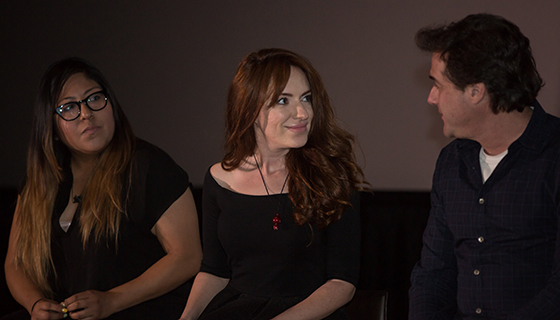| Maya (film still) |
Later, when Maya reads about the Armenian Genocide, she understands why her grandmother, who survived somehow, changes her name and religion.
“I am not trying, yet again, to prove the facts; that this is genocide. There is no need to prove that the story of my forefathers is not a fabrication. What interests me is how the genocide, one hundred years later, impacts the two sides. How the genocide continues, tormenting both sides,” says Nare.
The Pain of Denial
Maya, the film’s protagonist, decides to pay her respects to her grandmother’s memory and visit the Tzitzernakaberd Memorial Complex on the 100th anniversary of the Armenian Genocide. She stands before the camera but has trouble uttering the word “genocide”.
“Her denial was a clear expression of fear. I found myself in a dead-end and had to find a solution. I traveled a long road of anguish. I resolved to display the pain of denial in this film. I believe that Maya truly embodies this conflict. On the one hand, she suffers, and on the other, she denies,” notes Nare.



